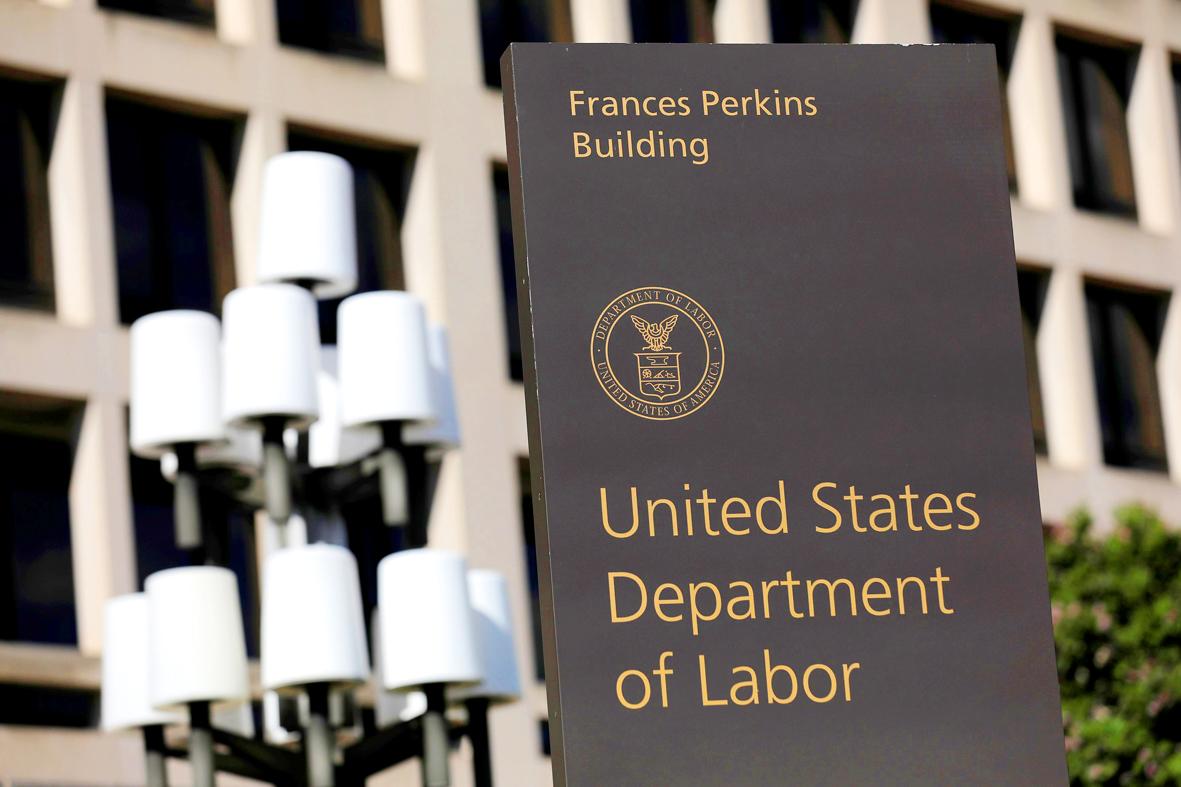Fish caught by vessels bearing Taiwan’s national flag have been classified as products of forced labor, based on the conditions under which the crews work, an annual report by the US Department of Labor said on Wednesday.
The Goods Produced by Child Labor or Forced Labor report said that Taiwan’s longline fishing fleet of 1,100 vessels, the world’s second-largest after China’s, employs about 35,000 migrant workers, mostly from Indonesia and the Philippines.
“Similar to crews on Chinese-flagged vessels, crews on Taiwan-flagged vessels face confiscation of documents, long days with little rest, physical and verbal abuse, and lack of payment,” the report said.

Photo: Reuters
Taiwan’s inclusion in the report means that US companies buying fish from Taiwanese suppliers could come under close scrutiny at US customs and the supply chain could be at risk of suspension.
However, the Fisheries Agency yesterday said that the nation’s fish exports to the US from its distant-water catch would not immediately be affected.
The agency said its top priorities are to improve the welfare of migrant fishers, ensure the observance of laws by the fishing industry and to keep the US informed of the nation’s efforts on such issues.
Council of Agriculture Deputy Minister Chen Tien-shou (陳添壽) said that the human rights of fishery workers is an intra-agency concern that also involves the Presidential Office, adding that the government in 2017 amended the nation’s laws to comply with the International Labour Organization’s Work in Fishing Convention.
The agency is launching a trial project to install wireless networks on ships, so that migrant workers can remain in contact with their friends and family, Chen said.
“Having the Internet on ships would also allow further transparency of information about what is happening on the ship,” he said.
Fisheries Agency Director-General Chang Chih-sheng (張致盛) said that the government would continue its dialogue with the US.
The nation’s management of its longline fishing fleet has improved significantly over the year and the government has established facilities for rest and recreation in major fishing ports, such as Pingtung County’s Donggang (東港) and Yilan County’s Suao (蘇澳), Chang said.
The government is also collaborating with local welfare and religious groups to provide religious services for migrant workers, he said.
The agency is further looking to amend the law so that the government would be able to prohibit foreign ships from docking in the nation should incidents of crew abuse be proven, he added.
Greenpeace USA senior oceans adviser Andy Shen said that major US retailers, such as Walmart and Costco, and national tuna brands, such as Bumble Bee that are supplied by the Taiwanese fleet would have to assure their customers that they are not profiting from and perpetuating modern slavery on the high seas.
“The companies have a responsibility to use their economic power to change the Taiwanese government’s and seafood industry’s human rights and environmental policies and practices,” Shen said.
Taiwan-based Human Rights for Migrant Fishers urged the government to introduce laws before the end of the current legislative session to enhance the protections and rights of migrant fishers, and to end forced labor and human trafficking on Taiwanese-flagged vessels.

The CIA has a message for Chinese government officials worried about their place in Chinese President Xi Jinping’s (習近平) government: Come work with us. The agency released two Mandarin-language videos on social media on Thursday inviting disgruntled officials to contact the CIA. The recruitment videos posted on YouTube and X racked up more than 5 million views combined in their first day. The outreach comes as CIA Director John Ratcliffe has vowed to boost the agency’s use of intelligence from human sources and its focus on China, which has recently targeted US officials with its own espionage operations. The videos are “aimed at

STEADFAST FRIEND: The bills encourage increased Taiwan-US engagement and address China’s distortion of UN Resolution 2758 to isolate Taiwan internationally The Presidential Office yesterday thanked the US House of Representatives for unanimously passing two Taiwan-related bills highlighting its solid support for Taiwan’s democracy and global participation, and for deepening bilateral relations. One of the bills, the Taiwan Assurance Implementation Act, requires the US Department of State to periodically review its guidelines for engagement with Taiwan, and report to the US Congress on the guidelines and plans to lift self-imposed limitations on US-Taiwan engagement. The other bill is the Taiwan International Solidarity Act, which clarifies that UN Resolution 2758 does not address the issue of the representation of Taiwan or its people in

US Indo-Pacific Commander Admiral Samuel Paparo on Friday expressed concern over the rate at which China is diversifying its military exercises, the Financial Times (FT) reported on Saturday. “The rates of change on the depth and breadth of their exercises is the one non-linear effect that I’ve seen in the last year that wakes me up at night or keeps me up at night,” Paparo was quoted by FT as saying while attending the annual Sedona Forum at the McCain Institute in Arizona. Paparo also expressed concern over the speed with which China was expanding its military. While the US

SHIFT: Taiwan’s better-than-expected first-quarter GDP and signs of weakness in the US have driven global capital back to emerging markets, the central bank head said The central bank yesterday blamed market speculation for the steep rise in the local currency, and urged exporters and financial institutions to stay calm and stop panic sell-offs to avoid hurting their own profitability. The nation’s top monetary policymaker said that it would step in, if necessary, to maintain order and stability in the foreign exchange market. The remarks came as the NT dollar yesterday closed up NT$0.919 to NT$30.145 against the US dollar in Taipei trading, after rising as high as NT$29.59 in intraday trading. The local currency has surged 5.85 percent against the greenback over the past two sessions, central